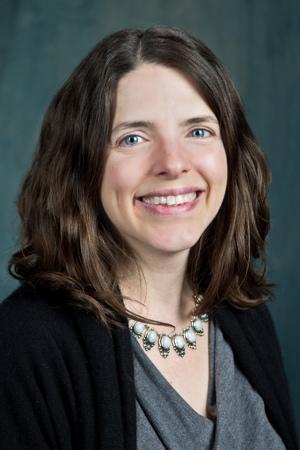Dr. Shannon Drysdale Walsh aids persecuted women in need

"Dr. Shannon Drysdale Walsh (Political Science) first left the United States in 2004 to investigate state response to violence against women in Central America. At the time, she did not imagine policies in the U.S. regarding violence against women attempting to seek protection here would occupy so much of her work. Now, in her teaching, research, and service, Walsh is bringing her experiences in Central America home to the U.S. and UMD.
Since 2013, Walsh has served as an expert witness in cases of women seeking asylum in the United States from domestic violence in Central America. She was initially called upon to serve as an expert witness because of her research on and fieldwork in El Salvador, Guatemala, and Honduras; and the related book she has been writing, titled Engendering State Institutions: State Response to Violence Against Women in Latin America. For her first case, a law firm in California asked Walsh to write an affidavit on country conditions in El Salvador for an asylum hearing regarding a woman who had fled the country.
This report focused on the few advances and many failures exhibited by El Salvador in response to the increasing crisis of violence against women. She analyzed the impact of the socio-legal context on female victims of violence in El Salvador and prospects for the woman’s survival if she was deported. “This was the first time I applied my research in a way that impacted an individual woman’s life, and it was extraordinarily fulfilling,” Walsh recalls. The woman was granted asylum, able to stay in the United States, and eventually eligible to apply for citizenship. Since that time, Walsh has performed this service pro-bono.
"To balance this service with her other work, Walsh takes on no more than a case per month. She draws on various resources to supplement her expertise, including reports from government and non-governmental organizations in Central America, international organizations, and reports from the State Department in the United States. The case work not only focuses on crimes against women, but also how the justice system in various countries has or hasn’t followed through in creating and implementing laws providing safety for women. In many countries, discrimination against women impacts the decisions of individuals in the justice system who disregard their cries for help or, worse, help perpetrators of violence by protecting them instead of their victims.
Women who go through this process hope to work toward citizenship in the United States. If granted asylum, they can petition for their children to join them. Alternatively, if they are granted withholding of removal, they are able to stay in the U.S., but they have no pathway to citizenship and cannot petition for their dependents to join them. In most courts in which Walsh has served, 85- 90% of people seeking asylum are deported, and in the other 10-15% are granted asylum or withholding of removal.
As of June 2018, policies in the U.S. changed significantly due to Attorney General Jeff Sessions’ denial of asylum to a Salvadoran woman, known as Ms. A.B. This ruling was a part of the broader decision, Matter of A-B-, which “overturned a legal precedent affirming the right of domestic and gang violence survivors to seek protection in the United States—even when authorities in their home countries are unable or unwilling to protect them.”
The American Civil Liberties Union and Center for Gender & Refugee Studies challenged these policies in December 2018, and Walsh drafted a joint declaration on country conditions in Honduras for the case. In response to the challenge, a federal court struck down the Sessions decision, upholding the right of domestic violence victims to seek asylum. This is in accordance with U.S. law that requires any newly arrived immigrant who “expresses" fear of return to their home country be given a screening interview” to determine whether they have a “credible fear of prosecution.” “While far from a guarantee of safety, this decision upholds obligations of the U.S. under domestic and international law to not summarily deport domestic violence and/or gang violence victims who have a credible fear of return to their home country,” Walsh says.
At UMD, Walsh integrates her fieldwork experiences and work as an expert witness into her political science classes on Central American politics, Latin American politics, and women and politics, among others. “Often, students want to know if what they are learning can help them make a positive impact in the world. By using these cases as examples, I demonstrate how developing specialized knowledge can empower us to make a difference to individual lives and public policy. We also engage in service- based learning that allows students to partner with individuals and communities I collaborate with in Central America. Students often remember these projects as the most meaningful component of the course.”